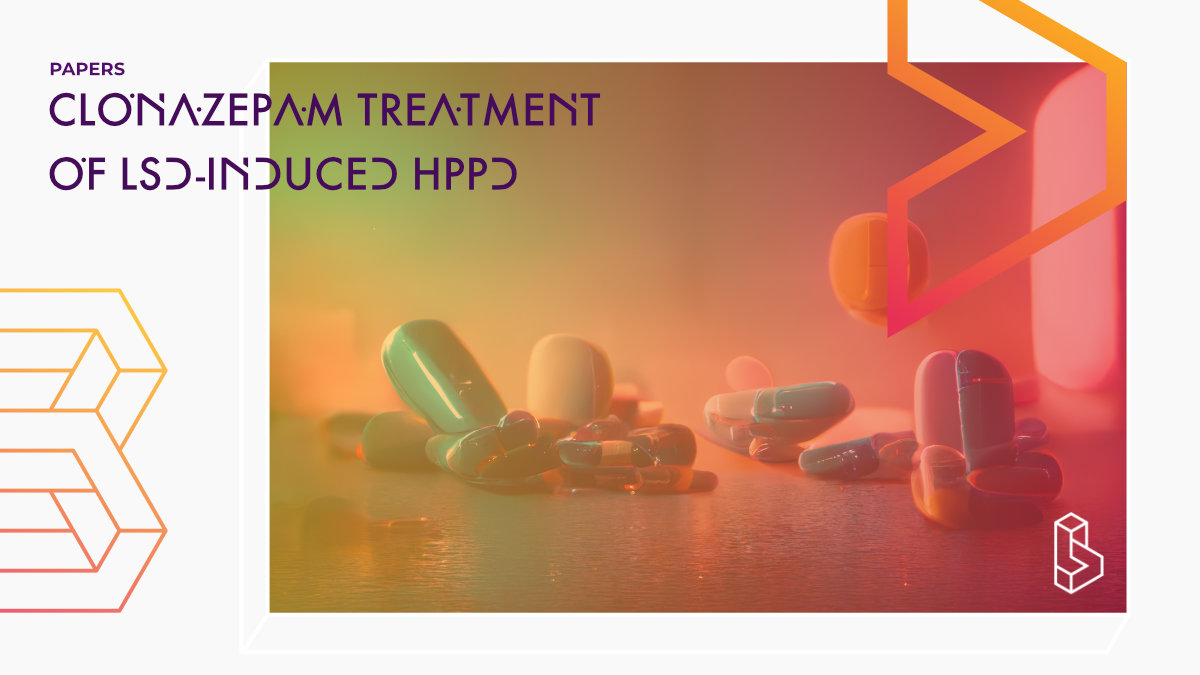This open-label study (n=16) suggests that high-potency benzodiazepines like clonazepam (2mg/day for 60 days) may help alleviate Hallucinogen Persisting Perception Disorder (HPPD). The patients reported relief up to four months after treatment. Do note that there was no control group in this study.
Abstract
“A unique and intriguing characteristic of lysergic acid diethylamide (LSD) and LSD-like substances is the recurrence of some of the symptoms which appear during the intoxication, in the absence of recent intake of hallucinogens. Hallucinogen persisting perception disorder (HPPD) is a condition in which the re-experiencing of one or more perceptual symptoms causes significant distress or impairment in social, occupational or other important areas of functioning and may be extremely debilitating. Benzodiazepines are one of the recommended agents for the treatment of HPPD but it is unclear which of them may be more helpful. The goal of our investigation was to assess the efficacy of clonazepam in the treatment of LSD-induced HPPD. Sixteen patients fulfilled entrance criteria. All complained of HPPD with anxiety features for at least 3 months and were drug free at least 3 months. They received clonazepam 2 mg/day for 2 months. Follow-up was continued for 6 months. They were weekly evaluated during the 2 months of clonazepam administration and monthly during the follow-up period using the Clinical Global Impression Scale, a Self-report Scale and Hamilton Anxiety Rating Scale. Patients reported a significant relief and the presence of only mild symptomatology during the clonazepam administration. This improvement was clearly sustained and persisted during a 6-month follow-up period. This study suggests that high potency benzodiazepines like clonazepam, which has serotonergic properties, may be more effective than low-potency benzodiazepines in the treatment of some patients with LSD-induced HPPD.”
Authors: Arturo G. Lerner, Marc Gelkopf, Irena Skladman, Dmitri Rudinski, Hanna Nachshon & Avi Bleich
Find this paper
https://doi.org/10.1097/00004850-200303000-00007
Paywall | Google Scholar | Backup | 🕊
Study details
Compounds studied
LSD
Topics studied
Anxiety
Depression
Study characteristics
Open-Label
Longitudinal
Follow-up
Participants
16
Humans
